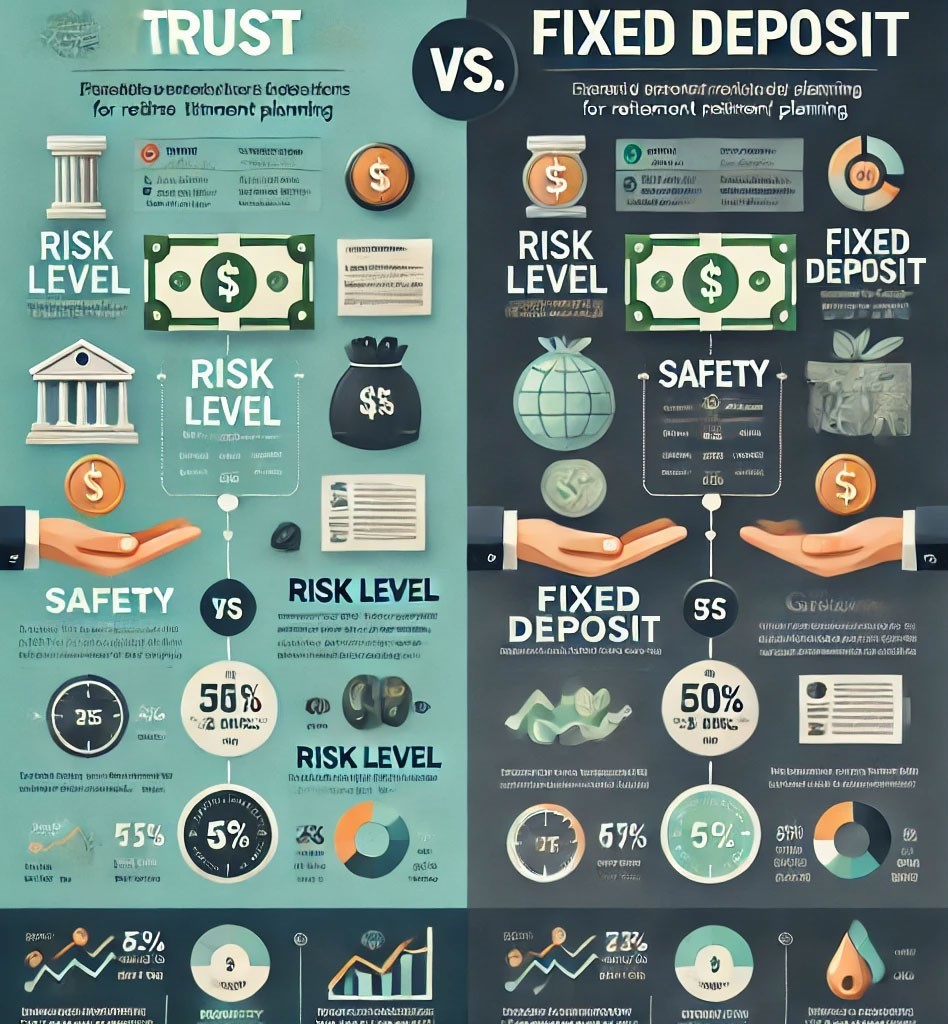Navigating Retirement Investments: Trusts vs. Fixed Deposits
When planning for retirement, choosing the right investment vehicles is crucial. Trusts and fixed deposits offer distinct advantages depending on your financial goals, risk tolerance, and the need for asset control. This comparison aims to help you determine which option might be best suited for your retirement planning.
Understanding Trusts in Retirement Planning
A trust is a fiduciary arrangement that allows a third party, or trustee, to hold assets on behalf of a beneficiary or beneficiaries. Trusts are broadly used for estate planning to ensure that assets are distributed according to the wishes of the trust creator. Here are some benefits:
- Asset Control: Trusts allow detailed control over how and when assets are distributed to beneficiaries.
- Tax Efficiency: Properly structured trusts can reduce estate taxes and potentially offer other tax benefits.
- Protection from Creditors: Trusts can provide protection against creditors or legal judgments, safeguarding your assets for beneficiaries.
The Role of Fixed Deposits in Retirement Planning
Fixed deposits (FDs) are a type of timed deposit offered by banks. They provide investors with a higher interest rate than a standard savings account until the maturity date of the deposit. Here are several advantages:
- Guaranteed Returns: FDs offer fixed interest rates, ensuring predictable returns.
- Investment Safety: Being insured by the bank, FDs are a low-risk investment.
- Ease of Investment: FDs do not require active management, making them a hassle-free investment option.
Key Differences Between Trusts and Fixed Deposits
- Risk Level: Trusts involve legal and managerial complexities but offer greater flexibility and potential tax advantages. Fixed deposits are straightforward, offering fixed returns with virtually no risk.
- Flexibility: Trusts offer more flexibility in terms of distribution policies and can be adapted to changing circumstances. FDs, however, are rigid with fixed terms and withdrawal penalties.
- Return on Investment: While FDs provide stable returns, trusts can potentially offer greater returns if invested wisely.
Choosing the Right Option for Your Retirement
Both trusts and fixed deposits have their place in retirement planning and deciding which to invest in will largely depend on your individual financial situation and retirement goals. Trusts can be beneficial for those who have larger estates or complex family situations that require detailed estate planning. Fixed deposits might be preferable for individuals looking for a simple, secure way to earn interest on their savings as they approach retirement. By understanding their distinct advantages and limitations, you can make a decision that aligns with your long-term financial goals and personal circumstances. Consider consulting with a financial advisor to better understand which option would best suit your retirement strategy.




